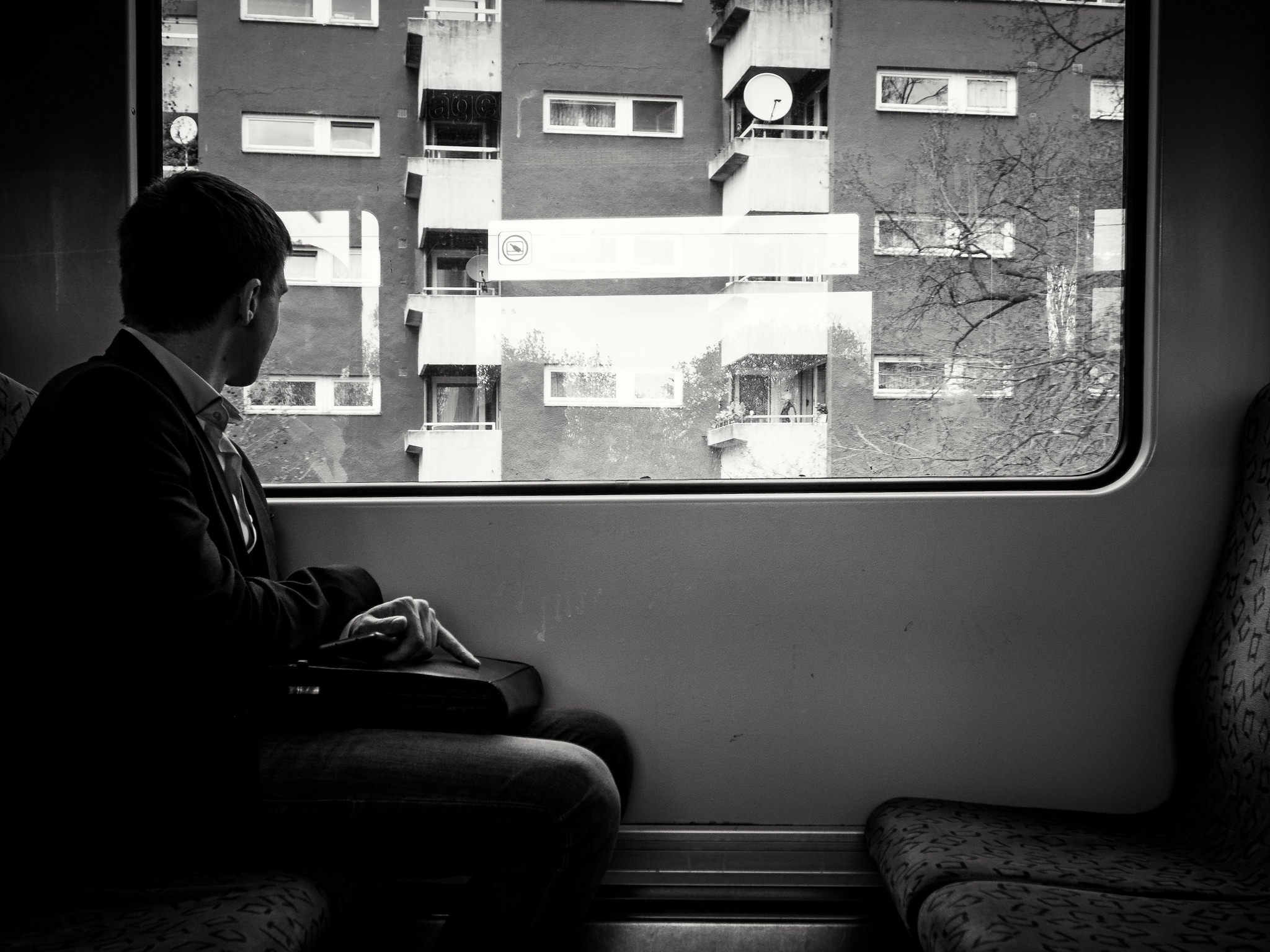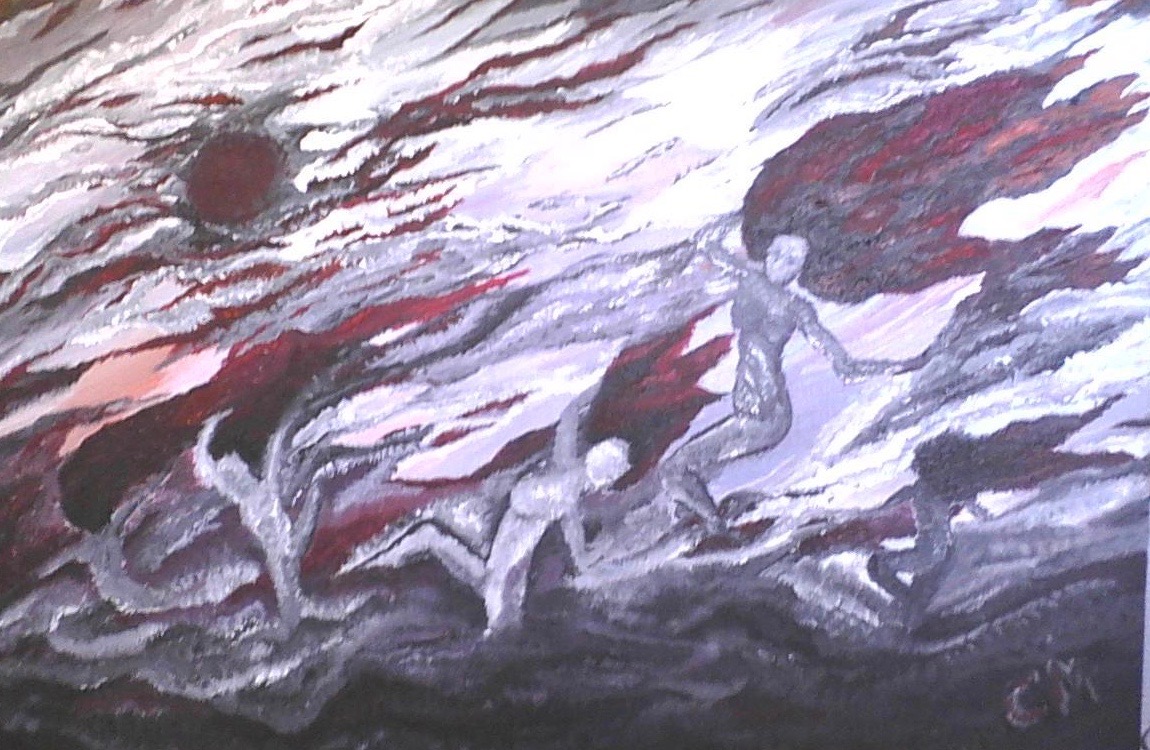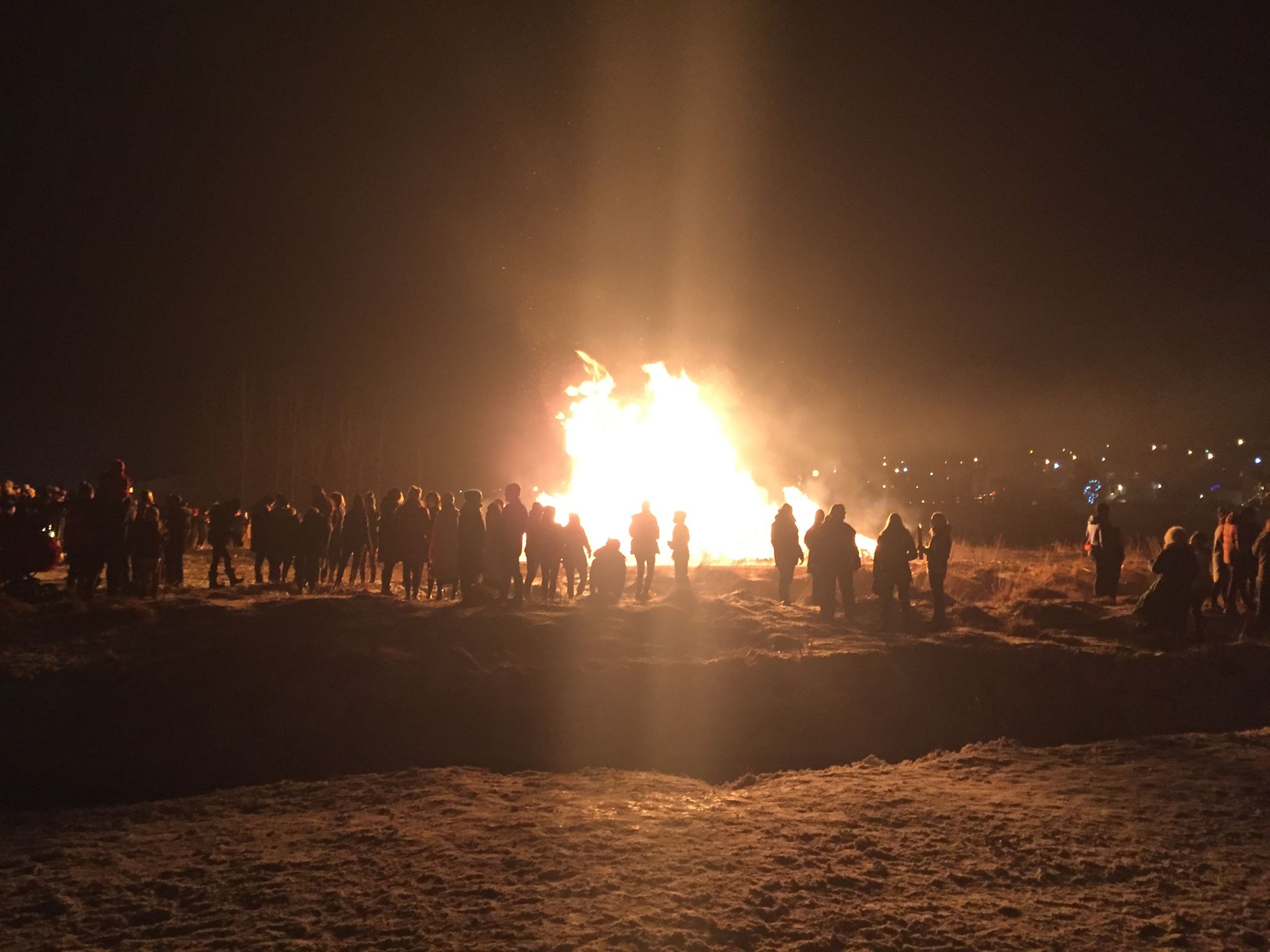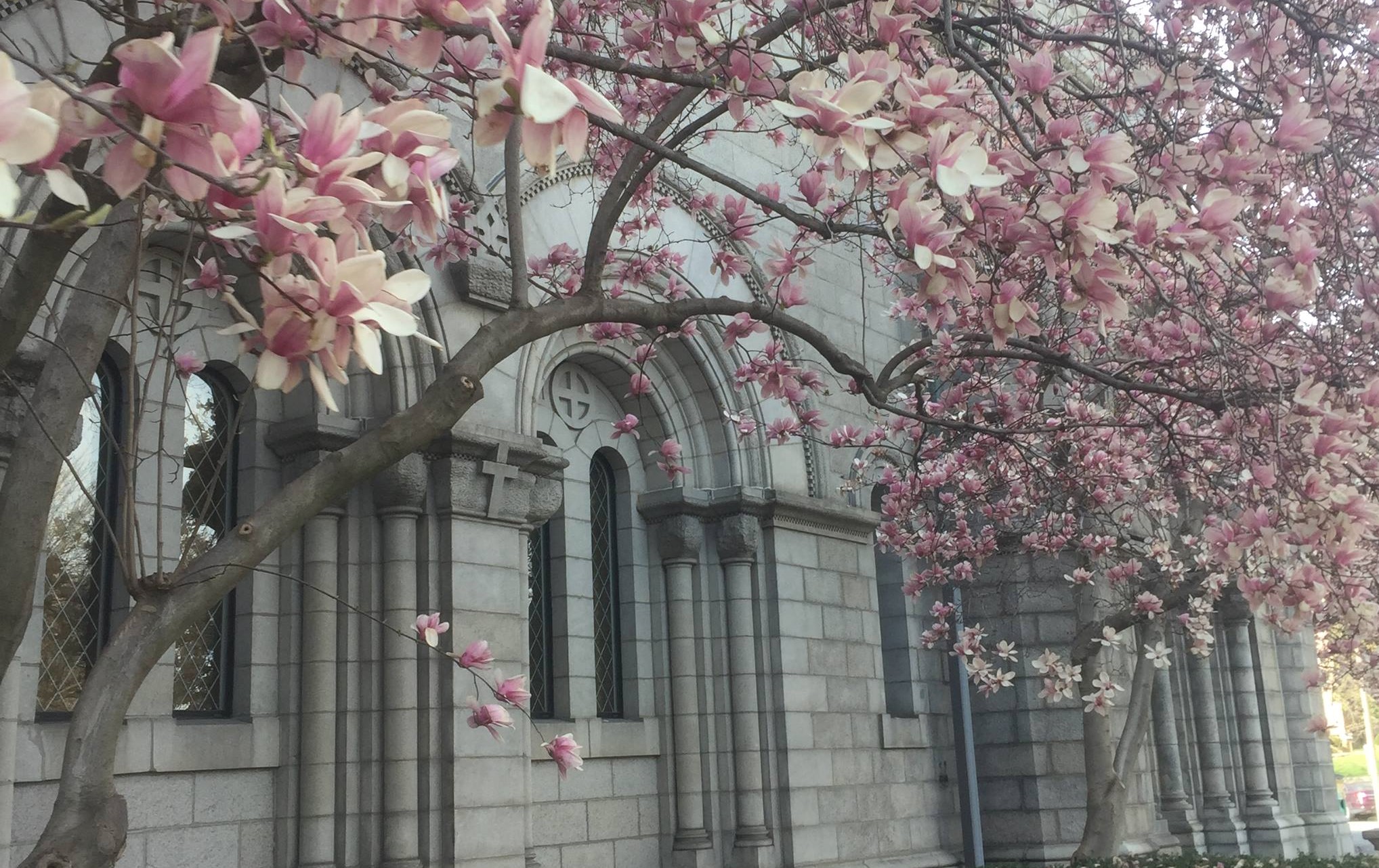
Fiction by Anthony Casella, Spring & Summer 2017
*
You don’t stumble over a word when your eyes find me at the back, careful not to lose the attention of the students shifting uncomfortably in their wooden seats. I wait patiently for your lecture to finish, and when the door finally closes behind the last student, we search each other from opposite sides of the room, looking for what comes next. Your face is something both familiar and new, and when it surrenders into an inviting smile, I walk to your open arms.
“My God, Luis!” you exclaim, taking me into an embrace. “This is certainly a surprise.”
“Well, I have a book signing this weekend,” I tell you, releasing you from my arms, foolish enough to think you’ve been following my work. “I’m sorry I didn’t call first, Richard, but I—”
“What are you apologizing for?” you ask kindly, “I can’t think of a better way to end a long week than seeing an old friend.” You gently place a stray hair back behind my ear, taking all of me in with your eyes. “You look good, Luis.”
“Thank you,” I whisper. “You look good too.” We aren’t prepared for the gravity of this moment, both wishing for a new one to arrive. “Do you have plans tonight?”
“My family is expecting me home for dinner soon,” you laugh, shrugging as though the idea that people are waiting for you is an accident you aren’t responsible for.
“I’m here until Sunday,” I say, not asking any more questions.
“I leave for a conference tomorrow,” you explain. I watch as you struggle with the offer we both know is inevitable. “Would you like to have dinner with us?”
“I wouldn’t want to impose,” I respond.
“That’s ridiculous,” you counter, “I’d love for you to meet Natalia and Michelle.”
“You’re sure it would be fine?” I ask, giving you one more out we both know you won’t take.
“I won’t accept no for an answer,” you decide, taking me by the waist as we head for the door. You let me leave first, but you were always a gentleman that way.
***
The way Natalia says you’ve told her so much about me lets me know she’s never heard my name before the call you must have made on the way here. What would you have said if you did? Would you have told her about the fighting we used to do and the making up that happened after? The trip to St. Tropez that changed everything? How you introduced me to a world that you abandoned me in?
“I wish I could say the same,” I reply, and we all laugh, three players pretending to know their roles in the foyer. She gently touches your arm, to signify you are hers or to let you know this will be the topic of a private discussion later. She is as beautiful as I would have expected, younger than you but not in a way that would make anyone whisper.
The old you would have been endlessly entertained by this situation, delighted in its ironies, riveted with its unease. It’s the kind of story you would have told us about the next day in class all those years ago, asking us to examine it for you, do the philosophical work you wouldn’t, a group of kids openly debating the emotional shortcomings of a grown man right in front of him and for his amusement.
“Who are you?” a young voice asks, suddenly standing at my feet.
“This is our daughter, Michelle,” you say, scooping her up into your arms.
“You’re a stranger,” Michelle says with a shy smile.
“I’m an old friend of your daddy’s,” I say. “It’s nice to meet you.”
“This is Luis,” you tell her, saying my name as though it’s something she forgot.
“Are you hungry, Luis?” Natalia asks, turning our attention to the meal she spent all evening preparing and the last hour altering for an unexpected guest. “We should eat before it gets cold.”
I work up the courage to meet your eyes when you put Michelle down and gesture for my coat. They are warm and comfortable, like a blanket I haven’t wrapped myself in for years. Michelle is already seated when we enter the kitchen and Natalia is putting the finishing touches on dinner by the stove. I sit at the chair across from you.
“That’s mommy’s seat,” Michelle declares, pointing to my mistake.
“That’s okay, sweetheart,” Natalia says with her back to us. “Luis, Richard tells me you’re a writer. That sounds romantic.”
“It’s more sleepless nights and unproductive days than glamour, I’m afraid,” I offer. “But I’m certainly grateful for any success.”
“Don’t be modest,” you interrupt. “You’re a brilliant writer.” Your eyes won’t leave me.
“Are you still writing?” I ask. You shrug as though it’s an impossibility.
“Honey, I didn’t know you wrote,” Natalia says uncomfortably, turning around now, making her presence known in a conversation between two people whose history she can’t quite track. She brings the dish to the table and gently puts her hand on the back of your neck. “I didn’t know that,” she whispers again to no one before taking a seat, slipping back into the role of hostess, reaching for her wine glass that’s already full.
She plays with your hair during dinner the way I used to, still dark and curly, but graying now at the temples, making you look distinguished. You’re more handsome than I remember, a man who’s earned his broodiness rather than a boy who is just pretending. I remember the time we spent together like it’s from a dream, jagged recollections that make up our story—stolen glances in the hallway after class; dinners that lasted until the sun came up; watching you from underneath the covers as you paced in front of the bed, smoking cigarette after cigarette, ranting about how marriage is not only the end of one’s own life, but the downfall of all civilization, people settling for something that won’t make them happy. You were thirty-four, brilliant, and irresistible. I was twenty, hopelessly naive, and in awe of you.
But the man in front of me is a shadow of the one I once knew. He kisses his wife gently on the cheek and doesn’t challenge her when she repeats something as a fact we both know is incorrect. She’s probably never heard you scream at the top of your lungs or slam a door so loudly the room shakes. You probably never bring her to tears with your words and then turn it all around with your hands. I can’t decide which one may be the better version of you.
Michelle is playing in the living room after dinner as we finish our second glass of wine. “Tell me about the two of you,” I inquire, an innocent request I’ve been afraid to ask. “How did you two meet?”
“I used to work at the university,” Natalia says.
“He seems to meet everyone that way,” I respond, taking a long sip from my glass.
“And how long have you two known each other?” she asks, her brow furrowed.
“Almost ten years, I would say,” you tell her.
“And almost as long since we’ve seen each other,” I finish, holding your gaze.
“It sounds like quite the welcome reunion,” she says, draining her glass. “Are you married, Luis?”
“I’m not,” I say, a catch in my throat, the weight of the evening suddenly making me lightheaded. I’ve fought the urge long enough and stand to retrieve my coat, excusing myself as I poke around the inside pocket for my pack. “If you’ll excuse me, I’m going to step outside for a cigarette. Would you care to have one with me, Richard?”
“Richard doesn’t smoke,” Natalia says sharply, her voice different, now soaked with wine and frustration from having to listen to the version of our past we’ve allowed her to know. “Not anymore.” She links her arm with yours and dissolves into your side, nuzzling her face into your chest.
“That’s good,” I say, standing over you both. “It’s a nasty habit.”
“Don’t stay outside too long,” Natalia warns, a hint of victory in her eye. “You’ll freeze.”
***
You’ve settled into this life. I can see it in the way you tend to her, making sure she’s included in the joke, taken care of in the simple ways that people who love each other worry about. But there’s an edge in her kindness toward me, as though she fears her suspicions are true, that she and I together make up a part of your history. I’ve decided on a second when you join me, buttoning your jacket and then rubbing your hands together for warmth.
“Natalia and I were going to tuck Michelle in,” you say. “I can’t believe how late it’s gotten.”
“I should go then,” I offer. “It was great seeing you, Richard. Give Natalia my best.”
You lean down to my hand with just your face and I bring the cigarette to your mouth, allowing you a few quick drags one right after the other. You walk just to the stairs to exhale, blowing the smoke away from the house, careful not to let it linger. “If Natalia smells this on me, I’m a dead man,” you say.
“She doesn’t know about us, does she?” I ask.
“No,” you respond, looking down. “She doesn’t know.”
“Your home is beautiful,” I finally say. “Do you mind if I take a moment to finish this?”
“Take all the time you need. It really was great seeing you, Luis.” You start to head inside.
“Hey, Richard,” I call out, needing you to stay before I know why. I gesture to the house and then the entire block, the identical houses with the perfect families inside. “Why?”
“Why?” you repeat, a question for yourself that you’ve never tried to answer. “After a while, it’s easier to be a part of something than it is to fight against it,” you say.
“And are you a part of it?” I ask, my teeth chattering from the cold.
“Goodnight, Luis,” you say with a smile.
You walk inside and your daughter runs to you before the door closes. Natalia waves goodbye warmly through the window now that you’ve been returned to her. I watch as you both carry Michelle through the foyer. She is shiny and new and without regrets, a miniature version of the dreams you both had, and you each get to carry a part of her with you up the stairs. I am alone in the cold, smoking outside your house, illuminated by the generous porch light you’ve put on, while you prepare to collapse into a warm bed with your beautiful wife. Which one of us is the fool?
It’s easy to remember—the conversations we had about who we wanted to be for each other, the cigarettes we shared outside your townhome as the street light flickered above us, the fights about other men, how deeply we could hate each other at night, how I wanted to be with you forever again in the morning, when you first told me you loved me on the beach that night in Sr. Tropez, the way you took it all back unexpectedly the night before we left, my tears staining the pillowcase while you refused to comfort me, how I needed you after and maybe haven’t stopped. I can still feel the sand between my toes, your body on top of mine, the heat from the sun beating down on us, and the salt water from your mouth in mine. I wonder if you can too.
*
Anthony Casella's fiction has appeared in HOBART and he was a finalist for the Mark Twain House & Museum Royal Nonesuch Humor Award. He lives in New York City.
Image Source

 Tuesday, July 18, 2017 at 10:23PM
Tuesday, July 18, 2017 at 10:23PM 




